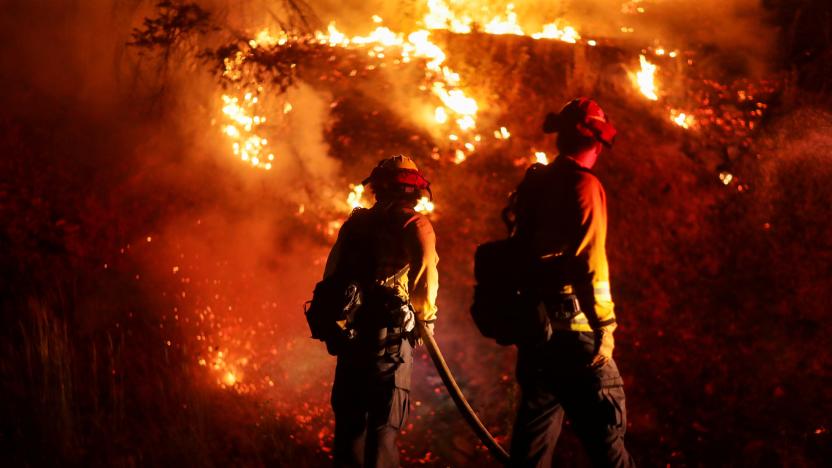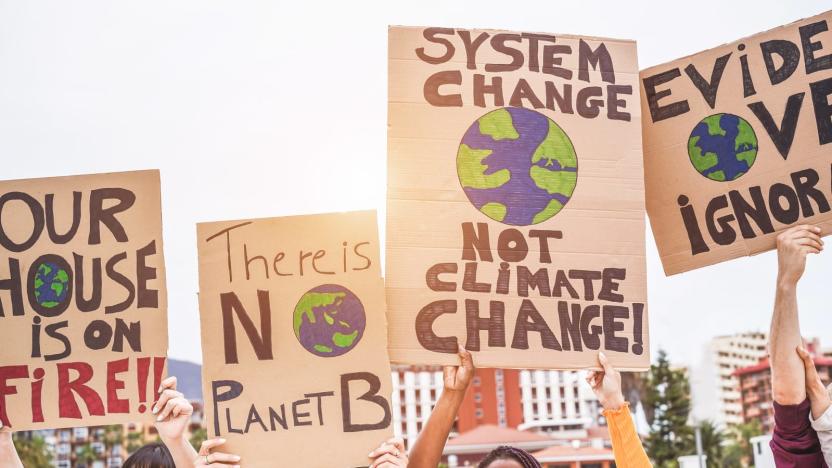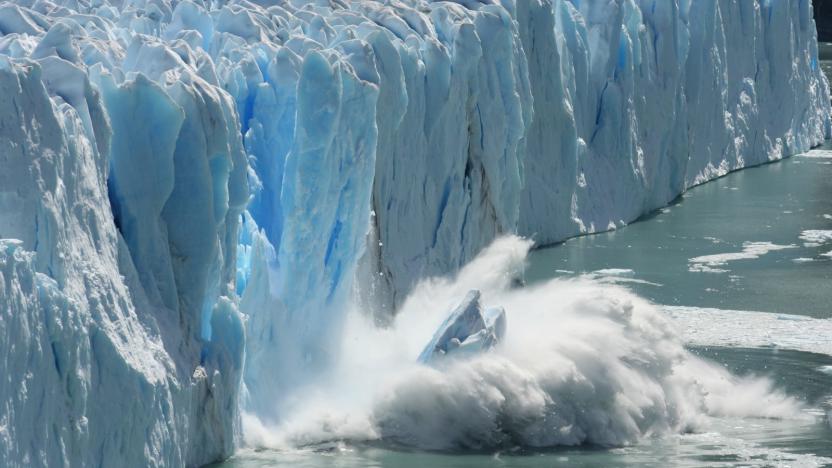ipcc
Latest

UN report says most climate change effects are 'unprecedented' and 'irreversible'
The document represents the most comprehensive analysis of the physical science behind climate change ever amassed in human history.

UN report says climate change is wreaking havoc on Earth’s oceans
Stressed by overfishing, pollution and, most of all, climate change, the world's oceans have hit a tipping point, with potentially dire consequences for humans. A new report published by the United Nations' Intergovernmental Panel on Climate Change (IPCC) is the latest look at the health of the planet's oceans. With some 7,000 studies referenced in the report, it's almost among the most comprehensive to date. The report warns that if climate change is not addressed, millions of humans could be negatively affected by rising sea levels, diminishing fish populations and more erratic weather.

New models show that the earth is warming faster than first thought
Scientists have made no secret of the extreme challenges posed by climate change, with the Intergovernmental Panel for Climate Change (IPCC) repeatedly stressing the importance of keeping global warming below two degrees. But now it seems the situation is much more serious than previously understood, with new climate models predicting average temperatures could rise by as much as seven degrees by 2100.

Sony brings its 100 percent renewable energy goal forward a decade
Just a month after Sony announced its plans to power its worldwide operations with 100 percent renewable energy by 2040, the tech company has brought forward its US goal by a decade, to 2030. Sony currently sources just 25 percent of its energy in the US from renewable sources, so the decision represents an ambitious vision for the RE100 company.

Major UN report says climate change is worse than first thought
Even if nations stick to the Paris agreement and keep global warming below two degrees, it will still be a major disaster for the planet, according to a blockbuster UN report on climate change. What's more, we now have less time to act than previously thought. If governments don't take massive action over the next decade, we could see severe food shortages, increased forest fires and large scale coral reef die-offs by 2040. The report also predicts more serious issues, including the potential migration of tens of millions of people that would increase the risk of wars.

UN: fixing climate change is affordable
One of the biggest arguments against fixing climate change is that it would cost too much. Not so, says the UN's climate change panel, which has found that abandoning fossil fuels would only knock around 0.06 percent off the world's GDP. According to the report, if low-carbon energy quadruples by 2050, then the planet may only warm by two degrees -- the upper limit before The Day After Tomorrow-style catastrophes are commonplace. The panel recommends switching to renewables like solar, wind and hydropower, with nuclear the next best option and biofuels in third, since the latter uses the same land and resources needed for growing crops. Maybe it's time that we all started cycling to work.

International science panel 95% sure global warming is humans' fault, urges 'substantial and sustained' greenhouse gas reduction
Global warming is almost certainly the fault of human beings, a new report by the United Nations climate panel states. It offers 95 percent certainty of that assertion, based on "some 2,500 pages of text and...millions of observations and over 2 million gigabytes of numerical data from climate model simulations," and it cites over 9,200 scientific papers (75 percent of which are from the last three years). The report also suggests "substantial and sustained" efforts to reduce greenhouse gas production; greenhouse gases (everything from water vapor to nitrous oxide) are the primary cause of the greenhouse effect, which destroys the Earth's protective ozone layer. Carbon dioxide, methane and nitrous oxide are the main culprits causing the Earth's ozone to deteriorate. CO2 levels have risen by 40 percent "since pre-industrial times," much of which was absorbed by the Earth's oceans (about 30 percent), resulting in rising acidity levels. Moreover, due to that absorption, the oceans -- specifically the upper ocean (0 to 700 meters) -- have been warming since the 1870s. As one might expect, the Intergovernmental Panel on Climate Change (the UN's climate change panel) suggests a greener lifestyle worldwide to help roll back the compound effects of global warming. A Tesla for each of us, perhaps? But even if we all go super green and massively cut back on greenhouse gas emissions worldwide, it sounds like humanity won't see the positive for quite some time. "As a result of our past, present and expected future emissions of CO2, we are committed to climate change, and effects will persist for many centuries even if emissions of CO2 stop," co-chair Thomas Stocker says.




